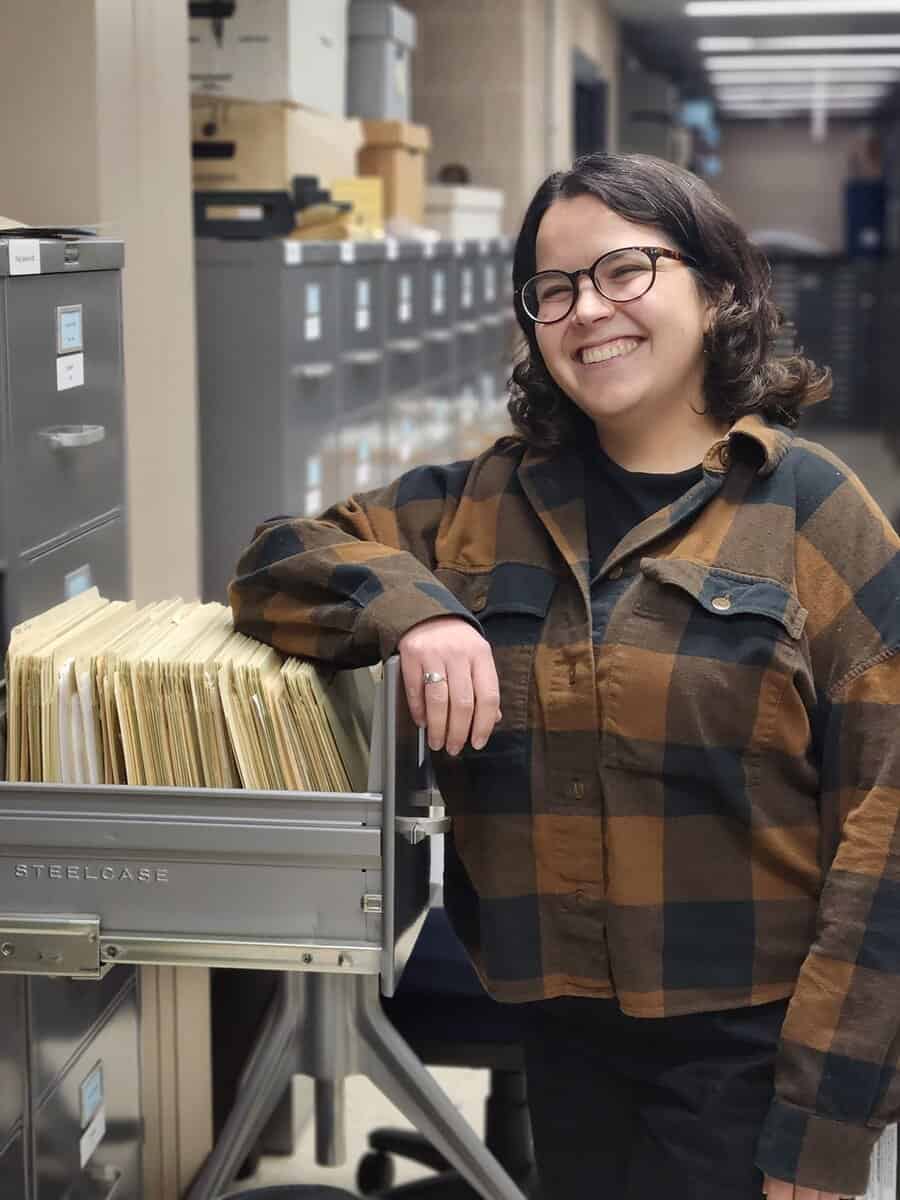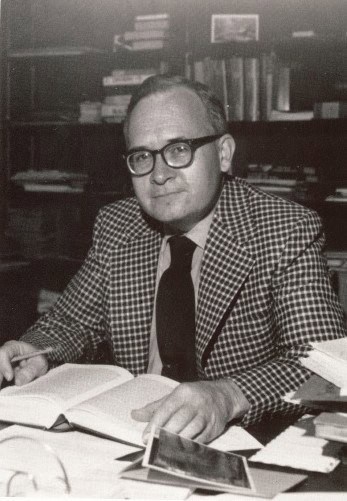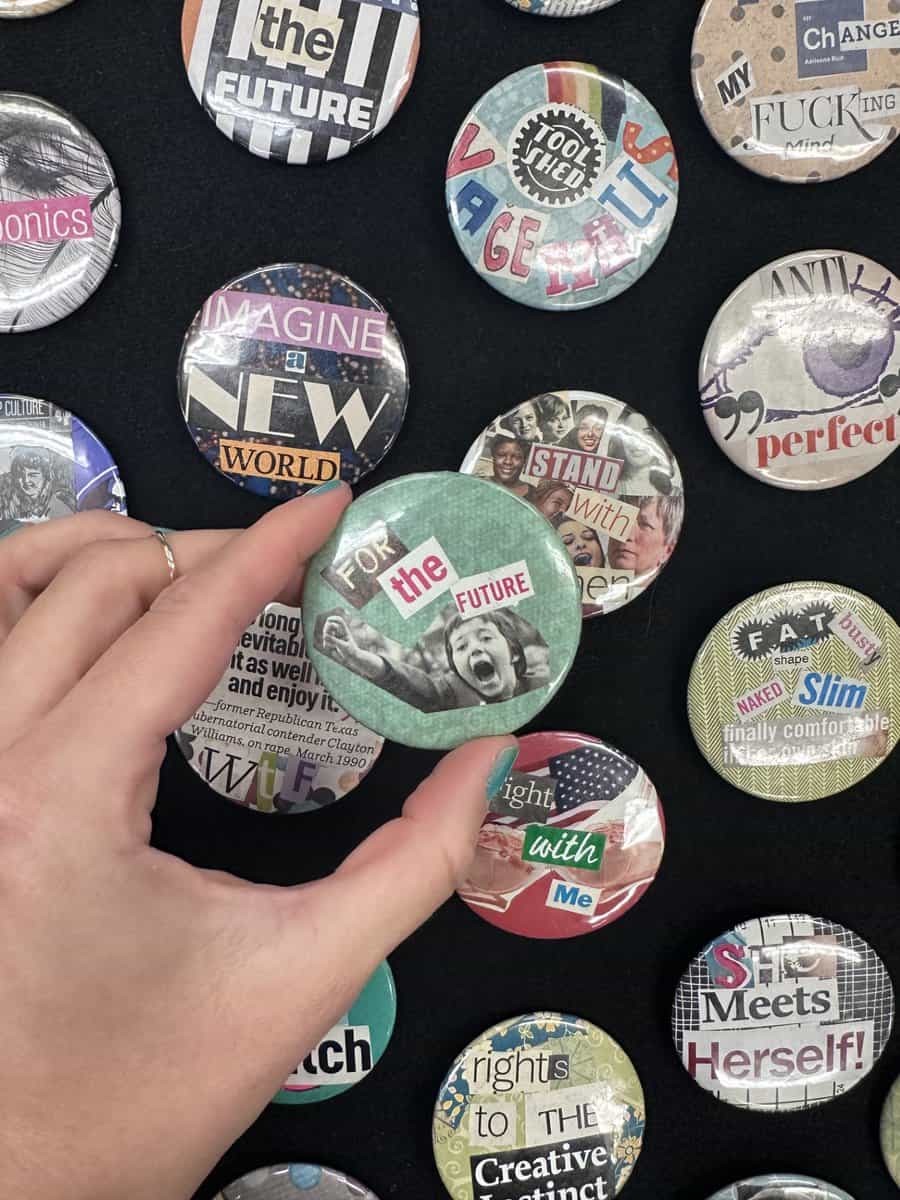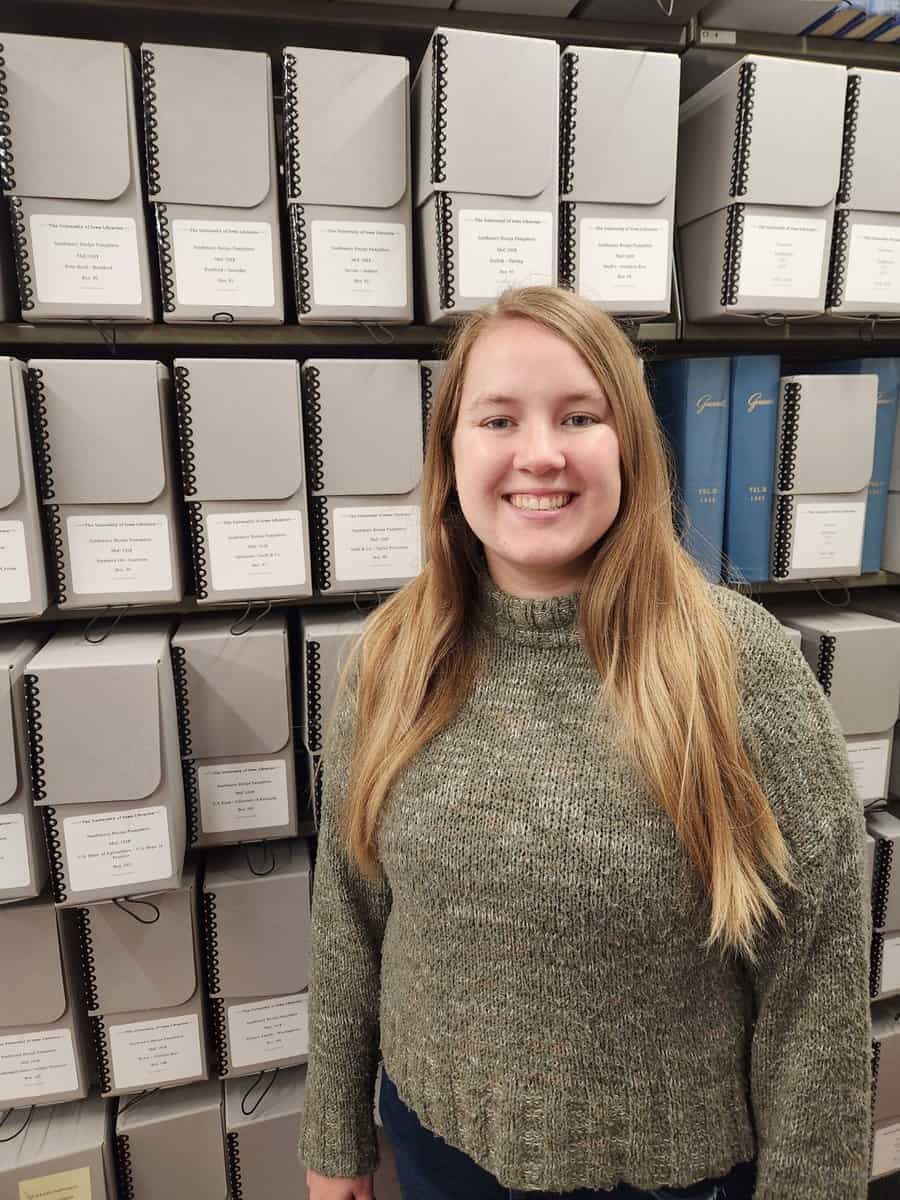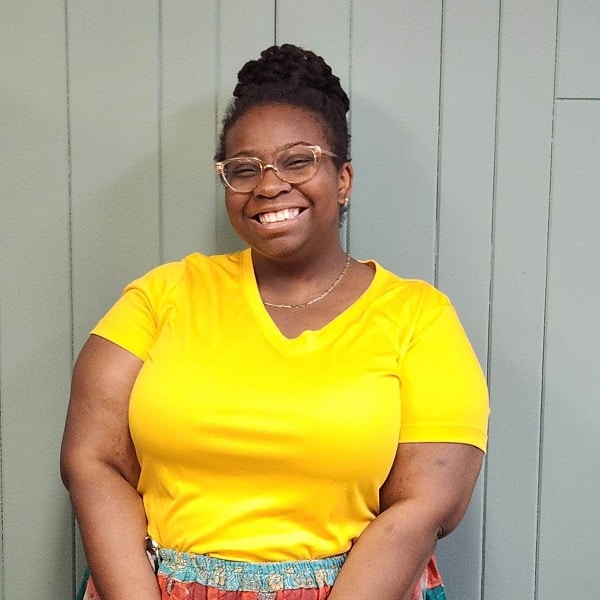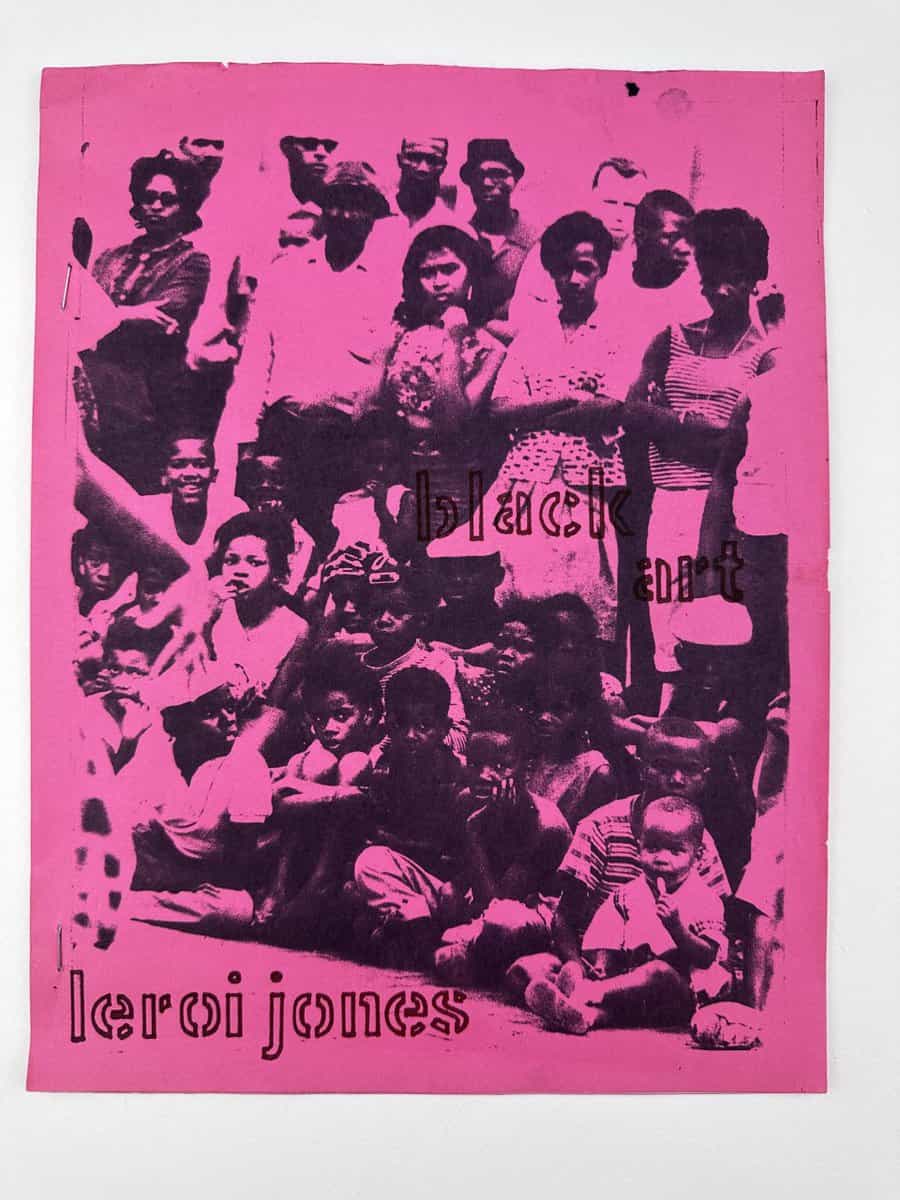We are happy to introduce Laura Michelson as the new curator of rare books and maps at the University of Iowa Libraries. Laura previously served as the Maps Collection librarian, a term position funded by the Roy J. Carver Charitable Trust. Prior to coming to UI Libraries, Laura worked for four years as project archivistContinue reading “Michelson named new curator of rare books and maps”
Category Archives: News
Welcome Isabel Cazares
We are happy to welcome Isabel Cazares as our new instruction and outreach librarian. In this position, Isabel will be working with both the University of Iowa Libraries and the Stanley Museum of Art to increase visibility and usability of our deep and distinctive art collections through object-based learning in the classroom. Isabel comes toContinue reading “Welcome Isabel Cazares”
Remembering Frank Paluka
We are saddened to announce the Feb. 15, 2025, passing of Frank Paluka, former director of Special Collections at the University of Iowa Libraries. Frank joined Special Collections in 1961, becoming the head of the department in 1962. He remained in this position until March of 1986. Under Frank’s direction, Special Collections’ holdings of rareContinue reading “Remembering Frank Paluka”
Hiring for Maps Collection Graduate Assistant
Calling graduate students looking to chart their next year! Applications are open for two graduate assistantships for hands on work in the University of Iowa Special Collections and Archives. In addition to the Olson Graduate Research Assistant search, we are seeking a graduate student to help navigate the Map Collection. Find the full postings onContinue reading “Hiring for Maps Collection Graduate Assistant”
Welcome Ursula Romero
We are happy to welcome Ursula Romero as our new outreach and instruction librarian in Special Collections and Archives. Originally from New Jersey, Ursula spent the last five years working as an outreach librarian at the Lilly Library at Indiana University. She earned her BA in media studies and a minor in international cinema fromContinue reading “Welcome Ursula Romero”
Welcome Rachel Romero
We are excited to welcome Rachel Romero as our new collections archivist in Special Collections and Archives. Originally from Chicago, Rachel received her MLIS with a special collections certificate in May 2024 and her BA in English from the University of Iowa. Previously, Rachel was a graduate processing assistant in Special Collections and Archives, whereContinue reading “Welcome Rachel Romero”
Buttons, Buttons, Buttons!
The following is written by Academic Outreach Coordinator Kathryn Reuter On a college campus, chances are high that you will encounter at least one button during the course of your day. Pin back buttons – sometimes called “badges” – have long decorated the tote bags, backpacks, sweaters, and jackets of university students. Buttons proclaim allegianceContinue reading “Buttons, Buttons, Buttons!”
Welcome Rachel Poppen, new collections archivist
We are pleased to welcome Rachel Poppen as our new collections archivist in Special Collections and Archives. Rachel joined the department in mid-July. Raised in Sibley, Iowa, Rachel received her Bachelor of Arts in English and Spanish from the University of Iowa. She then went on to receive her Master of Science in Information ScienceContinue reading “Welcome Rachel Poppen, new collections archivist”
Welcome Matrice Young, new student life archivist
We are happy to welcome Matrice Young as our new student life archivist in Special Collections and Archives. Matrice joined the Libraries at the beginning of summer. Hailing from Chicago, Matrice received her BA in creative writing with minors in educational studies and Africana. She received her MA in Library and Information Science from UniversityContinue reading “Welcome Matrice Young, new student life archivist”
10 Black Poets to check out in Special Collections & Archives
The following was written by academic outreach coordinator Kathryn Reuter Reading poetry by Black authors is a great way to celebrate Black History Month! We searched through Special Collections and Archives to find materials from Black poets, some who are familiar to us, and some less so. It was tough to limit ourselves to justContinue reading “10 Black Poets to check out in Special Collections & Archives”
